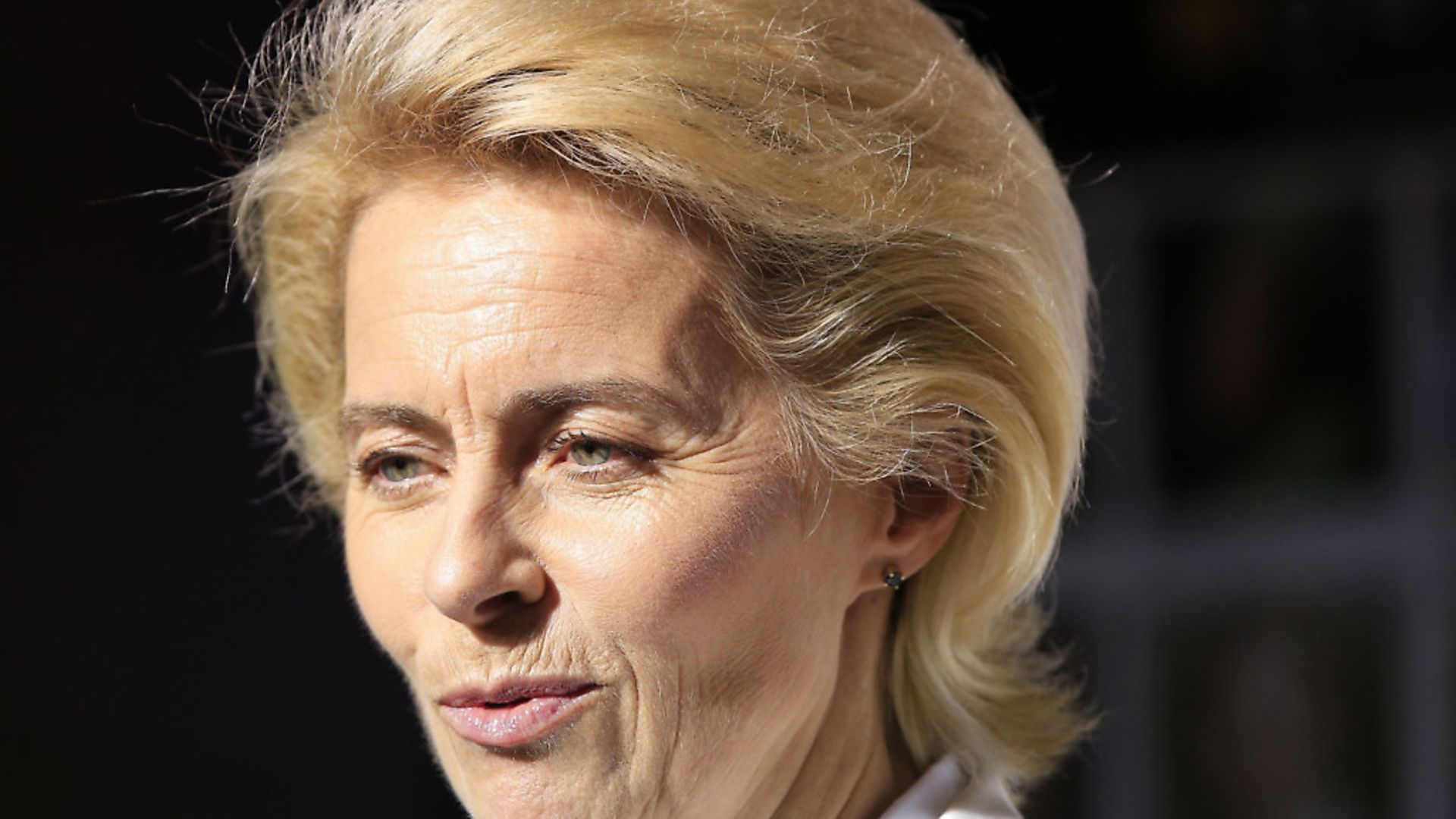
ANDREW ADONIS is full of praise for Angela Merkel’s decision to nominate German defence minister Ursula von der Leyen to lead the EU commission.
Ursula von der Leyen has Europe in her genes. Her father was one of the first top EU officials. She was born and raised in Brussels. She speaks German, French and English. She has been a moderate and effective member of Angela Merkel’s cabinet for her entire chancellorship since 2005. Von der Leyen’s career is an essay in modern Europe and democratic Germany.
Her life has been as much a preparation for becoming president of the European Commission as Boris Johnson’s life is a prelude to becoming editor of the Daily Telegraph or maybe permanent host of Have I Got News for You.
Von der Leyen is not a compromise candidate against Frans Timmermans, the able Dutch social democrat MEP favoured by the European parliament and most heads of government in their opening discussion. Rather she is a new and strong one. There’s a lot to be said for Angela Merkel’s protégé: one of the most successful ministers in the most successful government of the strongest and most successful state in modern Europe.
Her appointment is a morality tale of modern Europe. In the first few decades of the EU, the presidency of the commission was a straight inter-governmental stitch-up decided, essentially, by France and Germany.
The first – and only previous German – president of the Commission was Walter Hallstein in the 1950s and 1960s, a diplomat and academic favoured by Konrad Adenauer. As the post became more prestigious, in line with the EU’s rising success, it increasingly went to senior ministers like Roy Jenkins of Britain and Jacques Delors of France. Since Delors, every holder of the office has been a former prime minister.
Over the last decade, as its powers have increased, the European parliament has claimed a greater role. This has had pluses and minuses: a wider process and pool but also, potentially, weaker candidates coming from the European parliament itself with little government experience.
Hence the position faced this week in the selection of the president to succeed Jean-Claude Juncker. The candidate of the right favoured by the EPP bloc in the parliament, Manfred Weber, was not up to the job and was effectively disowned by Merkel, despite being German. Or maybe because of it – he is Bavarian.
The candidate of the left bloc in the parliament, Frans Timmermans, is a former Dutch foreign minister and current European Commissioner responsible for the EU’s Charter of Fundamental Rights. I am an admirer.
He didn’t get it because there wasn’t a sufficient consensus in the European Council. This was partly for ideological and geographical reasons, which always feature in these choices. More reprehensible, the populist band of Salvini, Orban and the current Polish government ganged up against him, not wanting a Commission president likely to bang on about fundamental rights.
At this point enter, again, the ever feline and brilliantly resourceful chancellor Merkel. She could have tried to force through Timmermans. Instead, she called for an overnight halt to discussions and changed tack entirely towards von der Leyen – cashing in her own chips for having sacrificed Weber, while snookering Orban and the neo-authoritarians.
They could hardly turn down the German defence minister, a woman from a right-wing party now favoured by Merkel and most of those who previously supported Timmermans, in a spirit of unity and compromise. But in the essentials of their political characters, there isn’t much to choose between Timmermans and von der Leyen. Indeed the German has a stronger political power base and may turn out to be a stronger Commission president, not least in facing down the pretensions of the neo-authoritarians themselves, as well as Johnson and his Brexit fantasies, and the real and present external dangers of Trump, Putin and Xi.
So good luck to von der Leyen. She has every chance of being a great president, and she is a worthy successor to the greatest EU presidents – Hallstein, for whom her father worked, Jenkins and Delors. She will be in a strong team alongside Christine Lagarde as the new president of the European Central Bank.
There was, of course, one major European country AWOL from these proceedings. The United Kingdom. The only news we made in Brussels this week was Nigel Farage and his desperate crew rudely turning their backs on the opening session of the new European parliament.
More precisely, they turned their backs on young musicians playing Beethoven’s Ode to Joy. It was shameful. It was also deeply ignorant. Beethoven wrote his ninth symphony as a commission from the Philharmonic Society of London.









